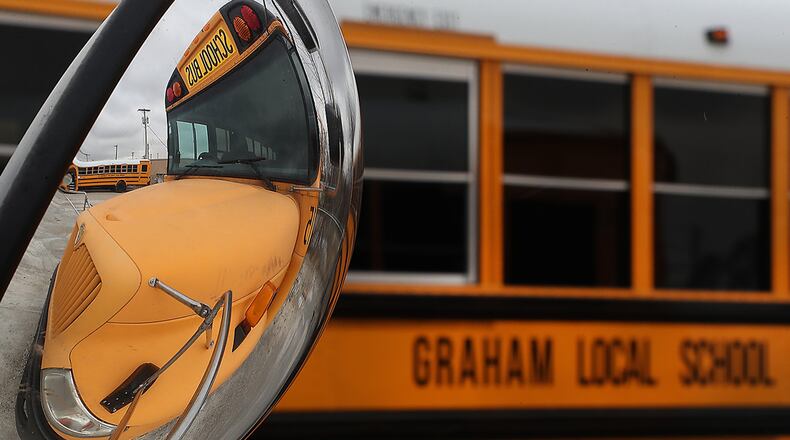“While we are disappointed with the results, we remain focused on our mission of providing the highest quality education to our students,” said Superintendent Chad Lensman. “Our focus will continue to be on making the most of the resources available to us, prioritizing academics, student safety, providing opportunities that help our students succeed, and maintaining our facilities.”
A big issue for school districts is staffing of teachers and other professionals, as employee wages and benefits make up 75-80% of most school districts’ expenses, including Graham’s.
“We will work diligently to retain and attract the very best educators and staff, who are crucial to our students’ success,” Lensman said.
If the levy would have passed, the school board was going to implement several things over the next five years, including:
* reinstating six certified teaching positions over four years;
* preserving and increasing educational supports in agriculture, music and art;
* adding another school resource officer;
* removing pay-to-participate fees and reducing school fees while lowering supply list items;
* making facility improvements and getting curriculum and technology supports up-to-date.
Lensman said the district tried an earned income tax because it does not tax retirement income, social security, workers’ compensation and benefits, unemployment benefits, interest, dividends or capital gains, disability and survivor benefits, railroad retirement benefits, welfare benefits, child support, or property received as a gift, bequest or inheritance.
“We understand the challenges that this decision presents, but please know that our dedication to ensuring that every student receives an excellent education remains our priority,” Lensman said. “We will continue to explore all avenues to meet our goals and work closely with our stakeholders to ensure that our schools remain a place where our students are successful today and prepared for tomorrow.”
Lensman said the school district had already cut over $1.3 million going into the 2024-25 school year, as well as cut 14 certified positions over two years, “directly impacting student opportunities and support received in the district.”
Graham has had no new tax levies to pay for day-to-day school operations in 32 years, Lensman said.
Graham schools were fairly steady on the 2023-24 state report card that was released this fall. The district scored 4 stars overall for the 2023-24 school year, the same as last year on the state’s 5-star scale. In individual categories, Graham scored 4 stars in progress, 3 stars in achievement and early literacy, and 5 stars in gap closing, all equaling their ratings from last year. The district got 5 stars in graduation rate, up from 4 stars the year before.
Other Champaign County levies
Champaign County residents decided on 18 tax issues in the November election. These are the votes that would have increased residents’ taxes.
Village of Mutual voters passed an additional five-year, 4-mill tax ($140 annually per $100,000 of home value) for fire and EMS services, with 62.12% voting in favor and 37.88% voting against.
Northeast Champaign County Fire District voters passed a replacement three-year, 4.5 mill tax ($157 annually per $100,000 of home value) for fire and ambulance protection, with 59.31% voting in favor and 40.69% voting against.
Village of Woodstock voters rejected an additional five-year, 2-mill tax ($70 annually per $100,000 of home value) for parks and recreation, with 68.9% voting in favor and 31.1% voting against.
Goshen Twp. voters rejected an additional five-year, 4-mill tax ($140 annually per $100,000 of home value) for fire and EMS service, with 56.6% against it and 43.4% for it.
Rush Twp. voters rejected a replacement five-year, 0.5-mill tax ($18 annually per $100,000 of home value) for cemeteries, with 54.5% against it and 45.5% for it.
About the Author

